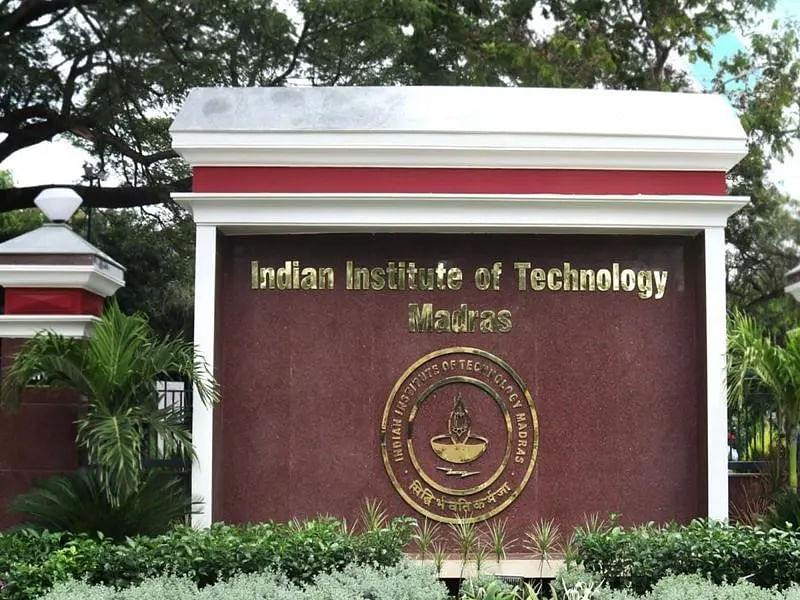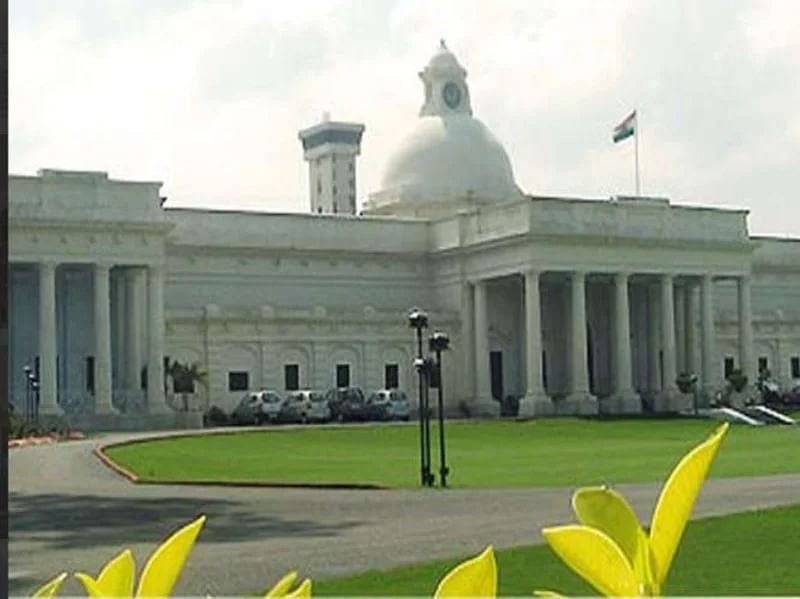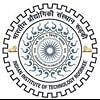MSc Maths Syllabus and Subjects

MSc Maths syllabus focuses on advanced maths including calculus, geometry, algebra, number theory, differential equation, discrete maths, and many more. The core subjects and elective subjects of MSc Mathematics syllabus are covered over 4 semesters. The subjects under electives vary depending on the university.
The MSc Maths core subjects focus on topics like mathematical structures, functions, probability and statistics, and abstract algebra. The elective subjects consist of topics like fluid mechanics, discrete mathematics, non-linear dynamics, coding theory, differential geometry, etc.
MSc Mathematics course subjects and syllabus enable graduates to increase their employment options in both the private and public sectors. Data Analyst, Operations Manager, Credit Analyst, Researcher, etc. are just a few of the MSc Maths job opportunities.
Table of Contents
Semester-Wise MSc Maths Syllabus
MSc Mathematics syllabus focuses on candidates gaining techniques and skills to solve various mathematical equations, algebraic expressions, etc. MSc Mathematics 1st sem syllabus contains a set of courses covering all foundation areas in the subjects of mathematics. Candidates willing to pursue M.Sc Maths should be well aware of the course syllabus. Students can download the MSc Maths Syllabus on the official websites of all the universities offering this course.
The detailed MSc Maths semester-wise syllabus is as follows:
MSc Mathematics Syllabus First Year
MSc Maths 1st year syllabus covers fundamental topics such as real analysis, abstract algebra, linear algebra, complex analysis, number theory, numerical methods, etc. Below mentioned is a table of the M.Sc Mathematics 1st sem syllabus.
|
MSc Maths 1st Semester Syllabus |
MSc Maths 2nd Semester Syllabus |
|
Algebra- I |
Algebra - II |
|
Real Analysis- I |
Real Analysis - II |
|
Complex Analysis |
Numerical Analysis |
|
Linear Algebra |
Functional Analysis |
|
Fuzzy Set Theory and Topology I |
Fuzzy Set Theory and Topology II |
|
Ordinary Differential Equations |
Groups and Rings |
MSc Maths Syllabus Second Year
MSc Mathematics 2nd year syllabus focuses on understanding advanced topics like elliptic, parabolic, and hyperbolic equations, finite element methods, techniques for mathematical research, mathematical modeling, etc. Here is a table of the MSc Mathematics syllabus for the second year:
|
MSc Maths 3rd Semester Syllabus |
MSc Maths 4th Semester Syllabus |
|
Topology - I |
Advanced Graph Theory |
|
Cryptography |
Measure and Integration |
|
Elements of Functional Analysis |
Topology - II |
|
Theory of Numbers |
Real Analysis |
|
Mathematical Methods |
Operator Theory |
|
Analytical Dynamics and Fluid Mechanics |
Differential Geometry |
|
Discrete Mathematics |
Dissertation/Project Work |
|
Computing Lab - I (Practicals) |
Computing Lab - II (Practicals) |
MSc Maths Subjects
The M.Sc Mathematics subjects consist of core and elective courses that include foundational, skill-oriented, and discipline-specific material for candidates. The candidate's choice of elective is based on the abilities they want to develop for career growth and also on the university's syllabus structure.
M.Sc Mathematics Core Subjects
MSc Mathematics syllabus has core subjects that provide essential information and techniques regarding advanced mathematics. Below are the core MSc Maths subjects:
- Functional Analysis
- Partial Differential Equations
- Differential Geometry
- Mathematical Methods
- Algebra I & II
- Real Analysis
- Topology I & II
- Fluid Mechanics
- Measure And Integration
- Ordinary Differential Equations
- Discrete Mathematics
- Eminent Mathematicians
- The History of Mathematics
- Complex Analysis I & II
M.Sc Mathematics Elective Subjects
Elective subjects are optional study subjects within the framework of syllabi. Below are the elective MSc Mathematics subjects:
- Applications of Special Relativity
- Canonical Transformations
- Fluid Mechanics
- Discrete Mathematics
- Electromagnetism in Special Relativity
- Rings and Modules
- The Four-Vector Formulation of Special Relativity
MSc Mathematics Subjects in Detail
MSc Maths subjects mainly include contemporary theories like algebraic geometry, topological methods, homological algebra, complex analysis, and practices associated with mathematics. The table below represents the several topics covered under each MSc Maths subject:
|
MSc Maths Subjects |
Topics Covered |
|
Analysis |
Relations and functions, Finite and infinite sets, countable and uncountable sets, Numerical sequences and their convergence, and Bounded sequences. |
|
Linear Algebra |
Vector spaces, linear independence, Similarity of matrices and linear transformations, Projections and their relation with direct sum decomposition of vector spaces. |
|
Algebra |
Group action; Cayley's theorem, group of symmetries, dihedral groups and their elementary properties; Basic properties and examples of ring, domain, division ring and field. |
|
Combinatorics and Graph Theory |
Partially ordered sets, Lattices, Complete lattices, Distributive lattices, Complements, Boolean Algebra, Boolean expressions, Application to switching circuits. |
|
Topology |
Connectedness - connected spaces, connected sets on the real line, path connectedness, Set-theoretic preliminaries. |
|
Commutative Algebra |
Modules and modules homomorphisms, submodules and quotient modules, Direct sums, Free modules, Finitely generated modules, Nakayama Lemma, Simple modules, Exact sequences of modules. |
|
Probability Theory |
Random events, Probability axioms, Combinatorial formulae, Conditional probability, Bayes Theorem, Independent events, Random Variables, Distribution Function. |
|
Reliability and Queueing Theory |
Introduction, Definition of probability, Failure data, Mean failure rate, Mean Time To Failure (MTTF), Mean Time Between Failure (MTBF), Graphical plots. |
|
Partial Differential Equations |
Formation and solution of PDE, Integral surfaces, Cauchy Problem order equation, Orthogonal surfaces, First order non-linear, Characteristics Compatible system, Charpits method. |
|
Ordinary Differential Equations |
Second-order linear equations, Qualitative Properties of solutions of ordinary differential equations of order two, Power Series solutions, Non-linear equations. |
College-Wise MSc Mathematics Syllabus
The MSc Maths syllabus differs as per university course structure and curriculum. The syllabus may vary in terms of elective subjects, practicals, and short-term projects conducted. In order to understand the M.Sc Maths syllabus in detail students can download PDFs from respective university websites. Below listed is the MSc Maths syllabus for top colleges:
Osmania University MSc Mathematics Syllabus
MSc Maths syllabus at Osmania University focuses on making students understand advanced concepts like cryptography, mathematical modeling, real and complex analysis, differential geometry, etc. Below listed is the semester-wise MSc Mathematics syllabus at Osmania University:
|
Osmania University M.Sc Maths Syllabus 1st Sem |
Osmania University M.Sc Maths Syllabus 2nd Sem |
| Liner Algebra | Lebesgue Measure and Integration Concept |
| Fundamentals of Abstract Algebra | Galois Theory |
| Ordinary Differential Equations | Topology Fundamentals |
| Concept of Mathematical Analysis | Complex Analysis Theory |
| Osmania University M.Sc Maths Syllabus 3rd Sem | Osmania University M.Sc Maths Syllabus 4th Sem |
| Functional Analysis | Understanding Partial Differential Equation |
| Concept of Elementary Number Theory | Integration Equation |
| Mathematical Statistics (Elective) | Analytical Number Theory (Elective) |
| Graph Theory (Elective) | Numerical Analysis (Elective) |
| Discrete Mathematics (Elective) | Elementary Operator Theory (Elective) |
| Operations Research (Elective) | Research Project |
Mahatma Gandhi University MSc Maths Syllabus
MSc Mathematics syllabus at Mahatma Gandhi University focuses on topics like studying group theory, ring theory, field theory, and modern mathematical applications through data analysis and optimization.
The semester-wise MSc in Mathematics syllabus curriculum offered at Mahatma Gandhi University is listed in the table below:
|
MSc 1st Sem Maths Syllabus |
MSc 2nd Sem Maths Syllabus |
| Topology-I | Topology-II |
| Abstract Algebra-I | Abstract Algebra-II |
| Graph Theory | Python-Numerical Analysis |
| Real Analysis Basics | Integration and Measures |
| Modern Algebra Concepts | Complex Analysis-I |
| MSc 3rd Sem Maths Syllabus | MSc 4th Sem Maths Syllabus |
| Complex Analysis-II | Concepts of Analytical Number Theory |
| Understanding Functional Analysis | Elective-I |
| Optimizing Techniques | Elective-II |
| Basics of Partial Differential Equations | Elective-II |
| Integral Transforms Basics | Dissertation |
M.Sc Mathematics Course Structure
The structure of the MSc Math syllabus allows it to cover various mathematical topics like number theory, algebraic geometry, probability theory, and theoretical computer science. The majority of the syllabus is made up of project work, which is weighted towards course completion.
The course structure of MSc Maths is detailed below.
- IV Semester
- Core Subjects
- Elective Subjects
- Project Work
- Assessment
- Dissertation Sumbission
M.Sc Mathematics Teaching Techniques and Methods
The MSc Maths syllabus focuses on various facets of maths and commerce. Candidates are given a thorough understanding of traditional and modern teaching methods. The course department offers mentoring and supervision to ensure direction throughout the project work. The following are only a few examples of the instructional methods and techniques:
- Assignments/Viva voce
- Course module books
- Mentorship/ Supervision
- Research work/ Dissertation
M.Sc Mathematics Projects
MSc Maths project, which is known as a mini-thesis is a compulsory project for the students to complete at the end of their semester. As such, students should regard their projects as an ideal opportunity for integrating what they have learned during the MSc Maths syllabus and applying the knowledge to their future working profession. Some of the M.Sc Mathematics project topics are:
- A Study Of Mfuzzy Subgroups And Their Level Subgroups
- A Study Of Common Fixed Point Approximations For Finite Families Of Total Asymptotically Non-Expansive SemiGroup In Hyperbolic Spaces
- Images Of Mathematics Stakeholders In Teaching And Learning Mathematics At Secondary Schools In Rural Areas of India
M.Sc Mathematics Reference Books
The M.Sc Mathematics syllabus has a wide range of topics such as numerical analysis, differential equations, advanced calculus, topology, functional analysis, etc., that are highlighted by certain important MSc Maths books. Some of the MSc Maths books are listed below.
|
Name |
Topics Covered |
Author |
|
Linear Algebra: Geometric Approach |
Vector Spaces, Linear transformations, Eigenvalues, Eigenvectors, etc. |
S. Lang |
|
Methods of Real Analysis |
Sequences and series, Continuity, Differentiation, Integration, etc. |
RR Goldberg |
|
Differential Equations |
First-Order Differential Equations, Second-Order Differential Equations, Laplace Transforms, etc. |
GF Simmons |
|
Foundations in Discrete Mathematics |
Set Theory, Graph Theory, Combinatorics, Logic, etc. |
KD Joshi |
|
Complex Analysis |
Complex Numbers, Analytic Functions, Residue Theorem, etc. |
Ahlfors |
Top M.Sc Mathematics Colleges
Top Science Entrance Exams
MSc Mathematics Fee Structure
FAQs on MSc Mathematics Syllabus and Subjects
Q: Is MSc maths difficult?
Q: Which exam is best for MSc mathematics?
Q: What is M.Sc Mathematics 1st sem syllabus?
Q: Can I specialize in MSc Maths course in specific fields?
Q: What is the importance of Mathematic Modeling in M.Sc Maths 2nd year syllabus?
























